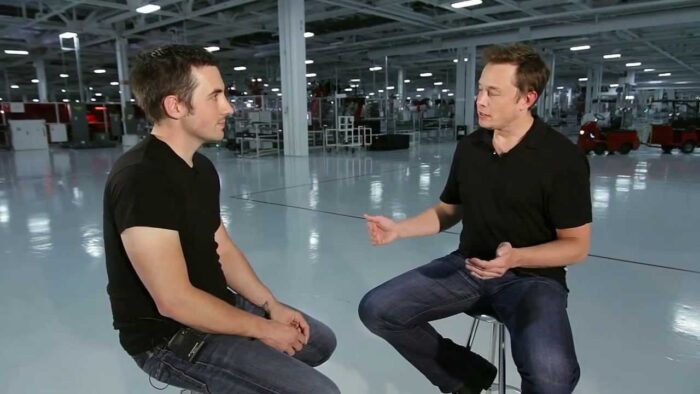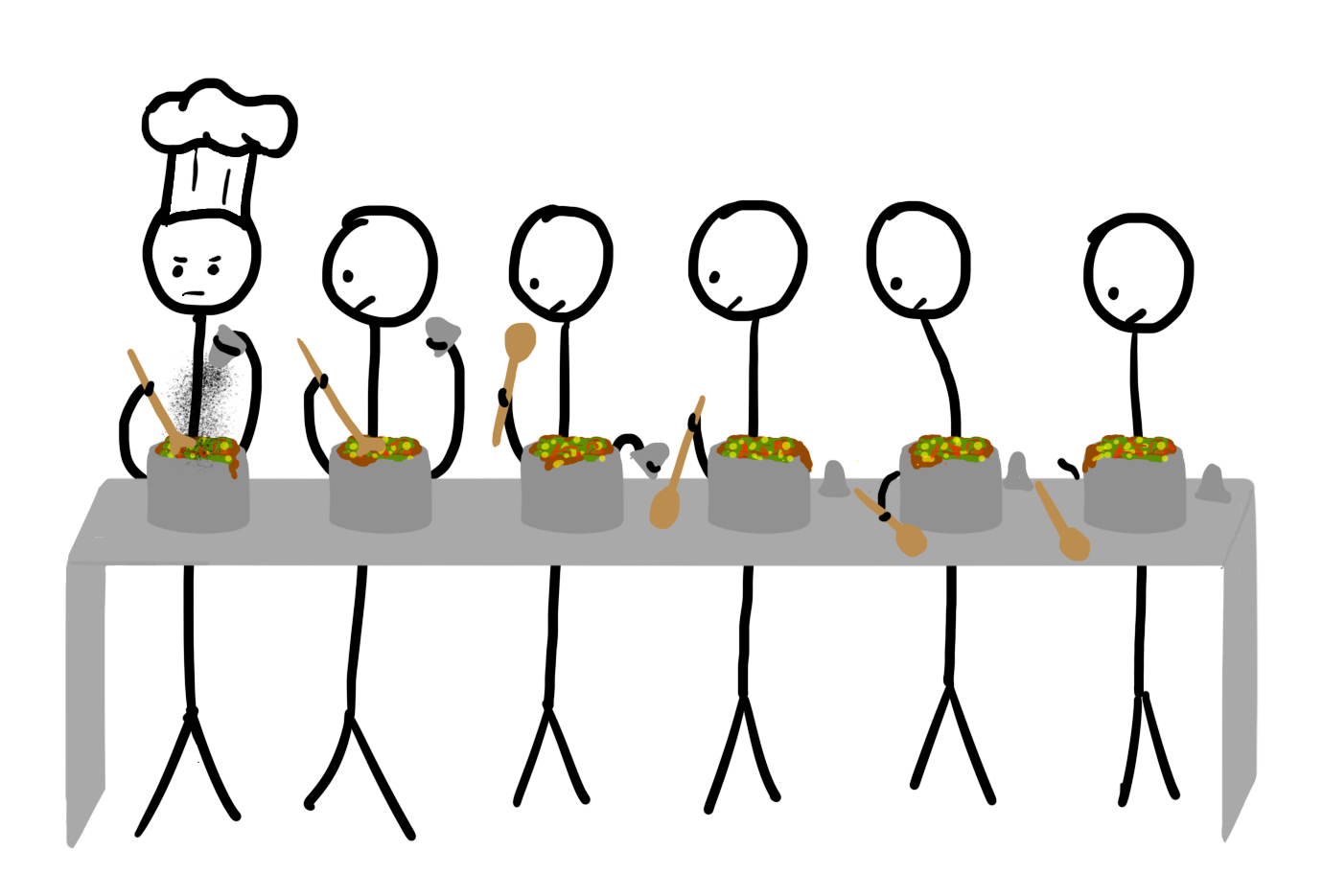ไม่ว่าจะชอบหรือเกลียด แต่คงต้องยอมรับกันว่า Elon Musk เป็นเลิศในแง่การบุกเบิกสิ่งใหม่ๆ ทางวิศวกรรม ไม่ว่าจะเป็นอวกาศ (SpaceX), รถยนต์ไฟฟ้า (Tesla) หรือเรื่องอื่นๆ (เช่น Hyperloop)
หลายคนคงมีคำถามว่าทำไม Musk ถึงได้ “เป็นอัจฉริยะ” ขนาดนี้ แต่จริงๆ แล้วมันเกิดจากวิธีคิดของเขาที่กล้าท้าทายอะไรใหม่ๆ ต่างหาก (เคยเขียนเรื่องนี้ไปแล้วครั้งหนึ่ง สั้นๆ)
วิธีคิดแบบ Musk เรียกว่า “First Principle” ซึ่งไม่ใช่ของใหม่ เพราะวงการปรัชญาใช้กันมาตั้งแต่สมัยของอริสโตเติลแล้ว มันคือการตั้งคำถามทางตรรกะไปเรื่อยๆ (ทำไม ทำไม ทำไม) เพื่อขุดลงไปถึง “ความจริงแท้” (ในภาษาคณิตศาสตร์คือ axiom) วิธีการคิดแบบนี้ใช้กันทั่วไปอยู่แล้วในวงการวิทยาศาสตร์ โดยเฉพาะฟิสิกส์
Musk นำวิธีคิดแบบนี้มาใช้ในเชิงธุรกิจ วิธีคิดแบบนี้ช่วยให้เขา “ลงลึก” ไปกว่าความเชื่อแบบเดิมๆ ของแต่ละอุตสาหกรรม (ที่อาจไม่เป็นความจริงอีกแล้วในยุคสมัยที่เปลี่ยนไป) เช่น จรวดมีราคาแพงมาก การทำธุรกิจสร้างจรวดจึงไม่คุ้ม
สิ่งที่ Musk ทำคือไปดูว่าจรวดผลิตจากวัตถุดิบอะไรบ้าง (เช่น เหล็ก เชื้อเพลง) แล้วคำนวณต้นทุนตามราคาจริง พบว่ามันไม่ได้แพงอย่างที่คิด สิ่งที่แพงคือวิธีการสร้างจรวดต่างหาก ทำให้ Musk พยายามหาวิธีสร้างจรวดแบบใหม่ที่ราคาถูกลง (บนต้นทุนวัตถุดิบที่เท่ากัน)
Musk เองเคยให้สัมภาษณ์เรื่องนี้ไว้หลายครั้ง ทั้งแบบเป็นคลิปและแบบบทความ
James Clear คนเขียนหนังสือเรื่อง Atomic Habits เคยเขียนบล็อกถึงเรื่องหลักคิดของ Musk ไว้เช่นกัน (บทสัมภาษณ์ต้นฉบับอยู่ใน Wired ตั้งแต่ปี 2012)
“I tend to approach things from a physics framework,” Musk said in an interview. “Physics teaches you to reason from first principles rather than by analogy. So I said, okay, let’s look at the first principles. What is a rocket made of? Aerospace-grade aluminum alloys, plus some titanium, copper, and carbon fiber. Then I asked, what is the value of those materials on the commodity market? It turned out that the materials cost of a rocket was around two percent of the typical price.”
Instead of buying a finished rocket for tens of millions, Musk decided to create his own company, purchase the raw materials for cheap, and build the rockets himself. SpaceX was born.
Within a few years, SpaceX had cut the price of launching a rocket by nearly 10x while still making a profit. Musk used first principles thinking to break the situation down to the fundamentals, bypass the high prices of the aerospace industry, and create a more effective solution.
อีกบทความหนึ่งที่เขียนเรื่องนี้ไว้ละเอียดคือ บล็อก Wait But Why ของ Tim Urban ที่ติดตามเรื่องวิธีคิดของ Musk อย่างมาก และมีโอกาสได้คุยกับ Musk โดยตรงด้วย (ขอบคุณคุณ Lek Rungroj ที่ส่งมาให้อ่าน) เขียนไว้ตั้งแต่ปี 2015
เนื่องจากบล็อกยาวมาก เนื้อหาสำคัญอยู่ในหัวข้อ How Musk’s software wrote his life story ซึ่งเป็นการเล่าเส้นทางชีวิตของ Musk ด้วยตัวของเขาเอง (น่าอ่านมากสำหรับคนที่เป็นแฟนคลับ Musk)
อันแรกคือเส้นทางชีวิตที่ต้องเลือก ระหว่างเรียนฟิสิกส์ กับวิศวกรรม เขาบอกว่าจบตรีฟิสิกส์ แต่ตัดสินใจมาสายวิศวกรรม เพราะวิศวกรรมทำให้เกิด data มาใช้กับฟิสิกส์ได้ แต่ฟิสิกส์อย่างเดียวมีแต่ทฤษฎี ไม่มี data ไปทำอะไรต่อลำบาก
I was at one point thinking about doing physics as a career—I did undergrad in physics—but in order to really advance physics these days, you need the data. Physics is fundamentally governed by the progress of engineering. This debate—“Which is better, engineers or scientists? Aren’t scientists better? Wasn’t Einstein the smartest person?”—personally, I think that engineering is better because in the absence of the engineering, you do not have the data. You just hit a limit. And yeah, you can be real smart within the context of the limit of the data you have, but unless you have a way to get more data, you can’t make progress. Like look at Galileo. He engineered the telescope—that’s what allowed him to see that Jupiter had moons. The limiting factor, if you will, is the engineering. And if you want to advance civilization, you must address the limiting factor. Therefore, you must address the engineering.
5 สิ่งที่ Musk กำหนดเป็นเป้าหมายชีวิตไว้ตั้งแต่ตอนเรียน เขาอยากทำในสิ่งที่เป็น “อนาคต” ของมนุษยชาติ
Musk says that in college, he thought hard about the first principles question, “What will most affect the future of humanity?” and put together a list of five things: “the internet; sustainable energy; space exploration, in particular the permanent extension of life beyond Earth; artificial intelligence; and reprogramming the human genetic code.”
จะเห็นว่า Musk ทำไปเกือบทุกข้อแล้ว เช่น Internet (PayPal), Sustainable Energy (SolarCity/Tesla), Space Exploration (SpaceX), AI (OpenAI) น่าจะยังเหลือเรื่อง Genetic Code ที่ยังไม่ได้ทำ
หลังจากประสบความสำเร็จกับบริษัทอินเทอร์เน็ตแล้ว Musk จะนั่งเป็นนักลงทุนสบายๆ ไปทั้งชาติก็ได้ แต่เขายังมีสิ่งที่อยากทำอยู่ แม้เป็นไปได้ยากในทางปฏิบัติ (“บริษัทจรวดไม่เวิร์คหรอก”) เขาใช้หลักคิด First Principle ขุดลงไปเรื่อยๆ เพื่อหาความเป็นไปได้แบบเดียวกัน ได้คำตอบเดียวกับที่ยกมาแล้วข้างต้น
Historically, all rockets have been expensive, so therefore, in the future, all rockets will be expensive. But actually that’s not true. If you say, what is a rocket made of? It’s made of aluminum, titanium, copper, carbon fiber. And you can break it down and say, what is the raw material cost of all these components? And if you have them stacked on the floor and could wave a magic wand so that the cost of rearranging the atoms was zero, then what would the cost of the rocket be? And I was like, wow, okay, it’s really small—it’s like 2% of what a rocket costs.
Musk เลยศึกษาเพิ่มลงลึกไปอีก ด้วยการไปคุยกับคนในอุตสาหกรรมอวกาศ เพื่อดูว่ายังมีช่องโหว่อะไรที่มองไม่เห็นอีกหรือไม่ และสุดท้ายพบว่าไม่มีอีกแล้ว เขาเลยตัดสินใจเดินหน้าลุยทำ SpaceX
So clearly it would be in how the atoms are arranged—so you’ve got to figure out how can we get the atoms in the right shape much more efficiently. And so I had a series of meetings on Saturdays with people, some of whom were still working at the big aerospace companies, just to try to figure out if there’s some catch here that I’m not appreciating. And I couldn’t figure it out. There doesn’t seem to be any catch. So I started SpaceX.
วิธีคิดแบบ Musk ถูกใช้ซ้ำในเวลาต่อมากับ Tesla และเรื่องอื่นๆ อย่าง SolarCity กับ Hyperloop ด้วย แม้ว่าบางเรื่องเขาไม่ได้ทำเอง เพราะมีพลังและเวลาไม่เหลือแล้ว
SolarCity ช่วงเริ่มต้นรันโดย Lyndon Rive ซึ่งเป็นลูกพี่ลูกน้องของ Musk (แม่เป็นฝาแฝดกัน) ก่อนขายกิจการให้ Tesla ส่วน Hyperloop เป็นการเขียน whitepaper อย่างเดียว ให้คนอื่นทำ
ส่วนตัวแล้วไม่ใช่แฟน Elon Musk (ออกจะหมั่นไส้ด้วยซ้ำในบางที) แต่ก็ต้องยอมรับว่า แนวคิดหลายอย่างของแกมีประโยชน์ ยิ่งในโลกยุค Post-Pandemic ที่ความเชื่อดั้งเดิมหลายอย่างถูกสั่นคลอน หลายอย่างล้าสมัยทันที หลายเรื่องต้องมานั่งคิดใหม่ ทำลายกรอบเดิมๆ ทิ้งไปให้หมด
ก็ได้เวลาที่ first principle จะสำคัญขึ้นมาทันที

